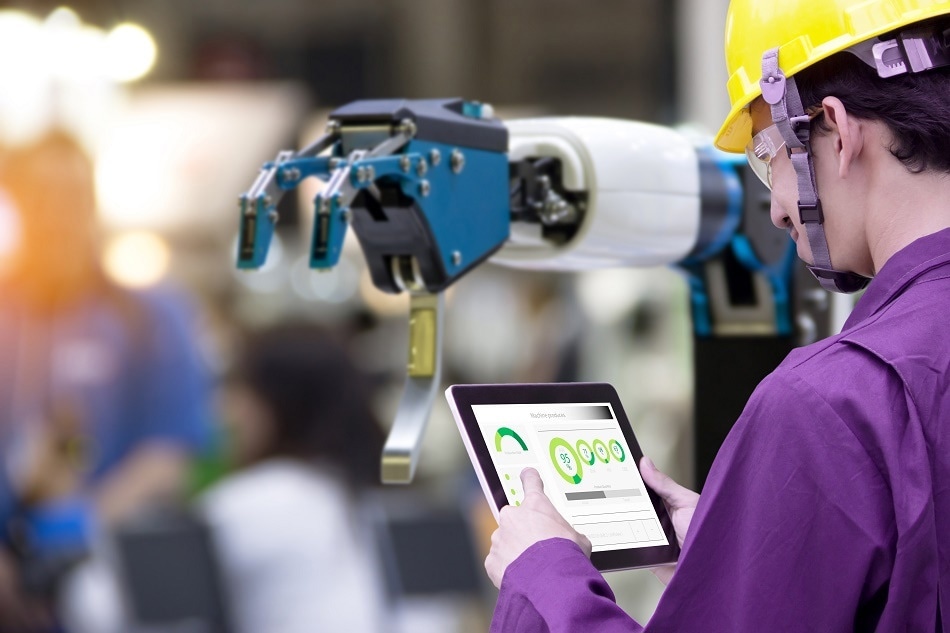
Image Credits: PaO_STUDIO/shutterstock.com
Artificial intelligence (AI) is a widely growing area and is present in many things from gaming to Human Resources algorithms these days. In addition to many areas that are not direct science applications, there are also many areas were artificial intelligence crosses over with scientific and engineering focused applications. In this article, we look at how AI is used in different science and engineering industries.
What is AI?
Artificial intelligence, commonly known as AI, is a field of computer science that creates intelligent machines which can learn, problem solve, recognize commands and plan tasks on their own. There are many traits to intelligent machines, including the above abilities, as well as the ability to perceive, gain knowledge and manipulate objects.
There are two key aspects to AI systems that are required before they can be used in any useful way, or in any given application. These are knowledge engineering and machine learning. Knowledge engineering is providing AI machines and/or AI systems the capability to learn and allowing the system to have access to an abundance of usable information that can be used to perform common sense, reasoning, and problem-solving functions. Machine learning, on the other hand, use past data and current data points to build and analyze trends so that the system can make an informed and intelligent decision. It is the process of self-learning where the AI system teaches itself and can be used to not only improve existing decisions but also to make new decisions that have not been made before. Overall, there are many different sub-sets of AI, which include the field of machine learning, but also other areas including deep learning and artificial neural networks (ANNs).
Manufacturing
There are many processes in the manufacturing world that can be automated using a ‘computer brain’ to reduce the number of people in a production line, to improve the safety of processes, increase the output/throughput of products and to better determine when equipment downtime will occur (which saves the company time and money).
Because artificial machines can perform a varying degree of tasks, repeatedly, and over a long period of time (without getting tired or slower like a human worker would), they can be used to create production lines that can run for 24 hours a day—which not only increases productivity and physical product output but also reduces costs. This is a big area where AI and manufacturing meet.
Perhaps the biggest area where AI has an impact is in predictive and preventative maintenance. AI systems use historical data points to spot trends before downtime of a machine in the production line occurs. By comparing the historical trends against the current data being measured, the system can tell when downtime is likely to occur and alert the maintenance team before the issue actually occurs. This minimizes unexpected downtime across the manufacturing facility and allows downtimes to be planned to maximize productivity throughout these maintenance periods.
Medicine and Pharmaceuticals
There are a few different areas where AI has penetrated the medical industry. One of the growing areas is the ability to diagnose diseases, cancerous tissues (and cancerous cells) and biological abnormalities by comparing the healthy versions (from past reference data) against the current sample. The system can spot certain characteristics to see if a cell/tissue is diseased or healthy and provide a diagnosis.
AI and other learning algorithms can also be employed to tackle drug delivery challenges. AI can be used at various stages, with the first involvement being in the target identification process and use its learned knowledge of what is likely to be a good receptor target. This approach can then be applied to the drug candidates to use previous data to decide on what molecules are potentially good drug candidates for the target receptor. Considering both tasks take up a lot of human time, it is a process that can speed up drug delivery processes. The machine learning protocols and extensive knowledge that AIs possess can then employed at the clinical trial stage to identify suitable candidates much quicker than a human can (as they can analyze the ideal data points/recorded values of a patient much quicker than a human). AI systems are also involved with choosing ideal biomarker candidates to tell if a patient has a specific disease and can speed up the synthetic creation of biomarkers as well as drugs.
There are two other areas of medicine and pharmaceuticals which are benefitted by AI systems. These are in personalized medicine and advanced gene editing. To personalize a treatment towards a specific patient, a lot of current and historical data needs to be analyzed and correlated to decide which treatment is right. AI and learning algorithms can do this with a much higher speed and accuracy than a human can. For gene editing, AI offers a way to edit DNA sequences with the precision of a surgeon, but with the added ability to predict the degree of interactions and side effects for each RNA strand.
Sources and Further Reading
Disclaimer: The views expressed here are those of the author expressed in their private capacity and do not necessarily represent the views of AZoM.com Limited T/A AZoNetwork the owner and operator of this website. This disclaimer forms part of the Terms and conditions of use of this website.